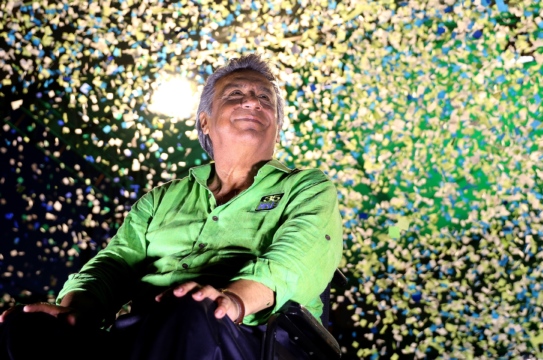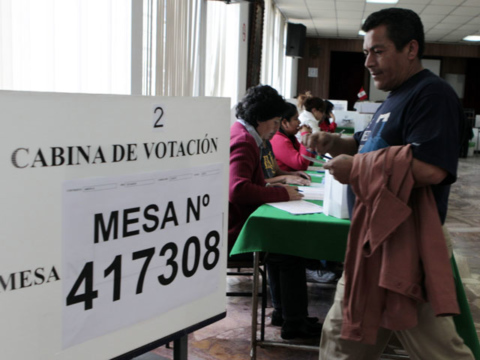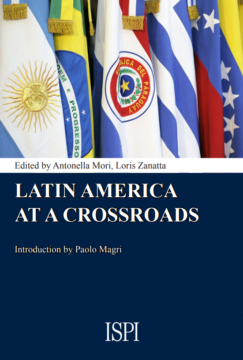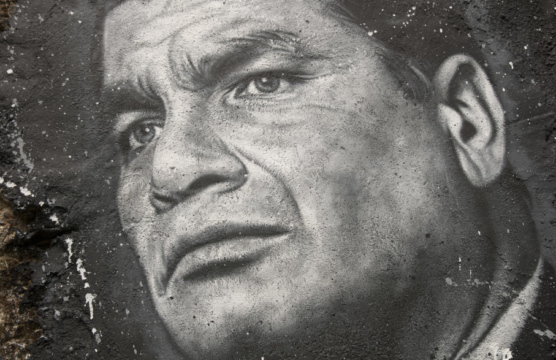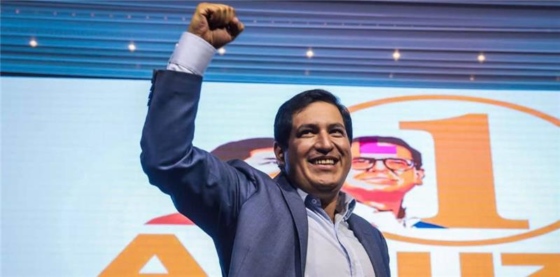
Who Is in the Best Position to Win Ecuador’s Runoff?
A Latin America Advisor Q&A featuring experts’ viewpoints on Ecuador’s presidential election results and April 11 runoff.
A Latin America Advisor Q&A featuring experts’ viewpoints on Ecuador’s presidential election results and April 11 runoff.
A summary of the conclusions and recommendations from the Inter-American Dialogue and Fundamedios USA’s second annual Media and Democracy in the Americas conference.
El presidente del Diálogo Interamericano, Michael Shifter, habló con Gustau Alegret del programa Cuestión de Poder de NTN24 sobre la situación actual en la región, la presión económica en muchos países y la crisis en Ecuador.
En este episodio de Club de Prensa, Juan Carlos Iragorri contó con la participación de Michael Shifter, presidente del Diálogo Interamericano; Raquel Godos, corresponsal de EFE; y Henrique Gomes Batista, Corresponsal De ‘O Globo’ – Brasil. Los participantes analizaron los cambios en las elecciones en Brasil y la investigación del expresidente ecuatoriano Rafael Correa por el caso Odebrecht.
On February 12, the Inter-American Dialogue hosted César Montúfar for an open discussion, moderated by Michael Shifter, about Ecuador’s current political climate. Montúfar is an academic, former member of Congress, a prominent political analyst, and the primary accuser in a recent trial against former vice-president Jorge Glas.
Ecuador’s President Lenin Moreno has maneuvered to break with his predecessor, Rafael Correa, and a legacy tinged with authoritarianism and corruption.
Uno de los aspectos menos estudiados del ascenso de las opciones políticas de izquierda en América Latina durante la última década y media –hoy más bien en retirada—tiene que ver con la curiosa simbiosis discursiva que precedió a su llegada al poder.
It is still too early to predict how Moreno will fare and whether his economic and anti-corruption approaches will ultimately succeed. But he has already defied predictions that he would act as Correa’s puppet.
Hay una tentación populista permanente nacida de injusticias acumuladas, crónicas debilidades institucionales y canonjías nacidas al amparo del poder.
Lisa Viscidi, Director of the Energy, Climate Change and Extractive Industries Program, testified before the US House of Representatives Committee on Foreign Affairs on the subject of “Energy Opportunities in Latin America.”
While many talk about the return of the right in Latin America, Rafael Correa’s “citizen revolution” won another term in office: former vice president Lenín Moreno will rule until 2021 after defeating former banker Guillermo Lasso in a close second round vote. Although the opposition candidate denounced electoral fraud, other Latin American governments, as well as the observation mission of the Organization of American States (OAS), have recognized the results. On May 24, then, Correa will hand his chosen successor the presidency and a series of challenges: economic decline, social polarization and (less urgent) a foreign policy in need of some adjustments.
Michael Shifter es entrevistado por La Tercera sobre las elecciones en Ecuador: “Si Moreno no gana en primera vuelta, obviamente el correísmo habrá perdido fuerza. Lenín Moreno no es Correa”.
Across Latin America, the sustained decline in global oil prices has had a profound impact on economic growth, political stability and the viability of resource nationalism – when governments assert more control over the nation’s natural resources.
As global oil prices collapsed over the last two years, regional governments have started to lose their leverage in the energy industry. To attract international investors, they must offer increasingly favorable terms, which means ceding more of their own control.
Ecuadordan President Rafael Correa battles an increasingly dissatisfied citizenry as he implements fiscal reforms to counter dropping oil prices.
 Video
Video
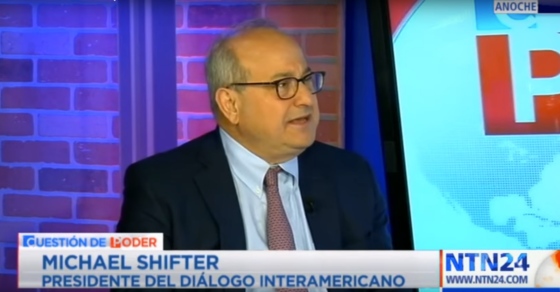 Video
Video
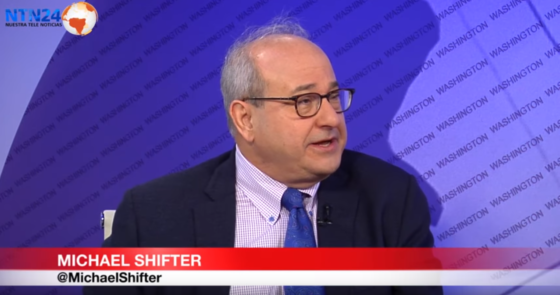 Video
Video
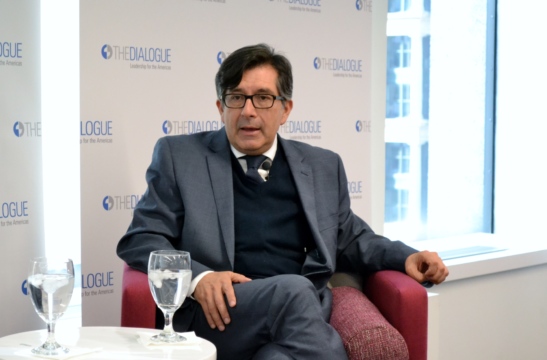 Video
Video
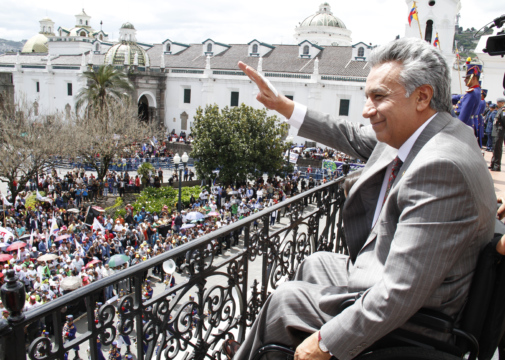
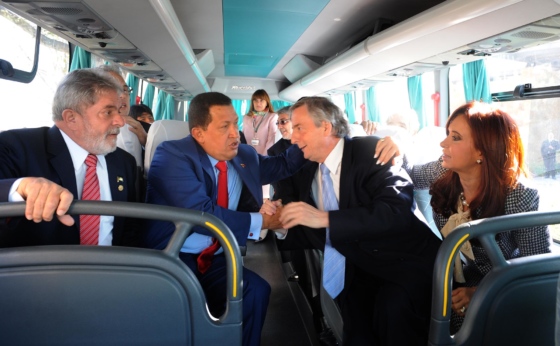
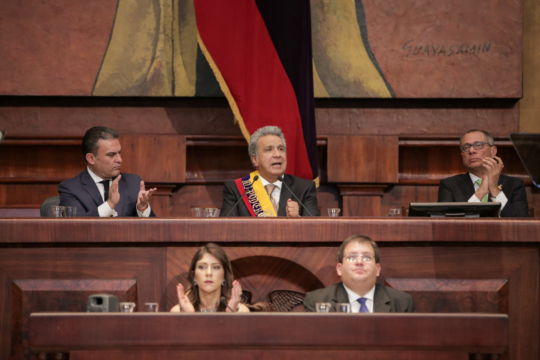
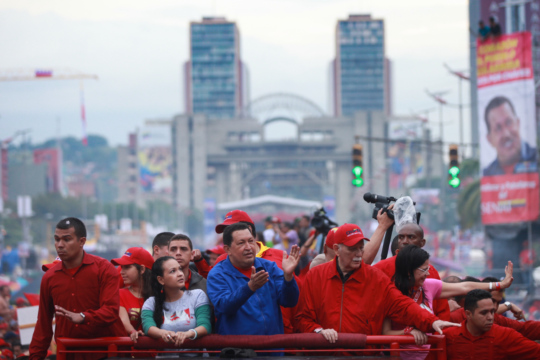
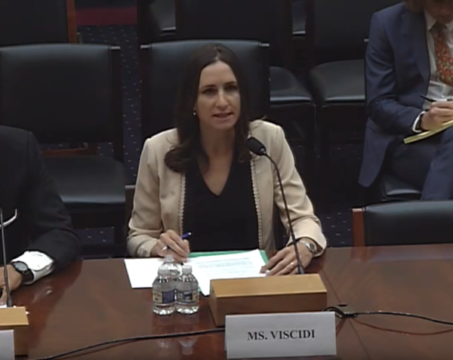 Video
Video
